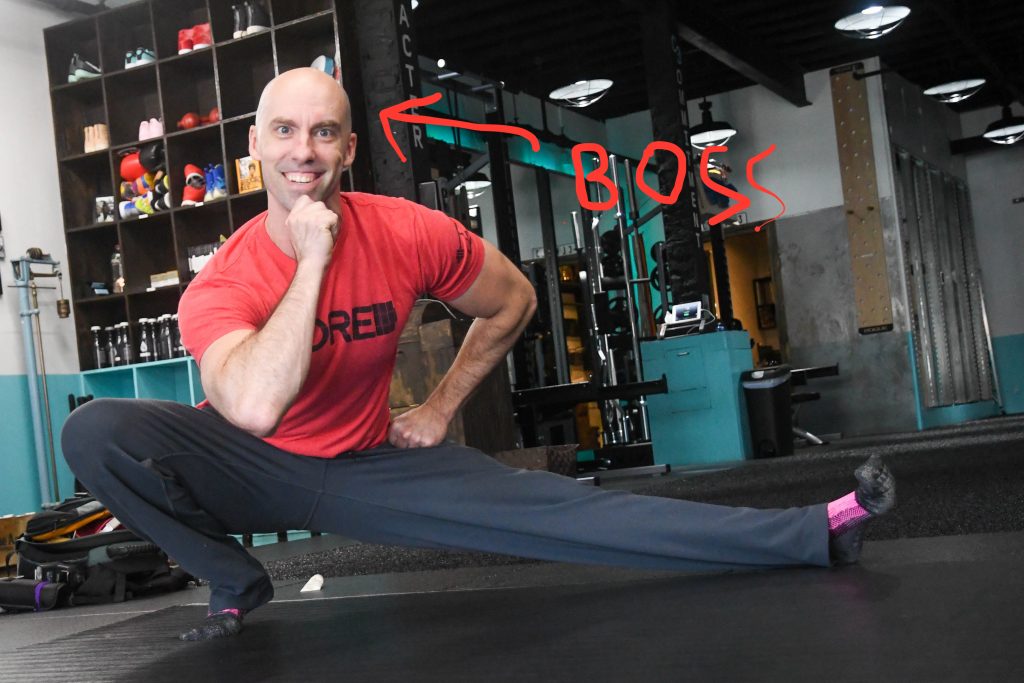“I don’t know.”
Three words a large swath of fitness professionals have a wretched relationship with.

The Lost Are of Saying “I Don’t Know”
The prevailing thought, it seems, is that admitting ignorance is a sign of weakness or that you’ll somehow lose credibility points for not knowing the answer to a client’s question…
…as if the fitness industry’s equivalent of Unella is stealthily lurking somewhere to shame walk you down a corridor for not memorizing every delicate step of the Kreb’s Cycle.
Shame, shame, SHAME!!
Listen, there are some things a personal trainer/coach likely should have a firm grasp on:
- The muscles of the rotator cuff?…✅
- How to program around low back or knee pain?…✅
- How many calories in a gram of protein?…✅
- Who Mel Siff is?…✅
But you can’t expect to know EVERYTHING about anything:
- Where’s the Levator ani located?…🤷♂️
- And, more importantly, what the hell is the Levator ani?…🤷♂️1
- What are the benefits and pitfalls of concurrent periodization?…🤷♂️
- What’s the atomic number of Adamantium?…🤷♂️
Maybe you knew the answer to all of the above, and if so, can we hang out? But if not, and on the off-chance someone in your life – whether it be a client, colleague, or your second cousin on your stepmother’s side – asked, and you didn’t know the answer, how would you handle it?
Rather than play hero, pretend to be an all-knowing smarty pants Spartan Jedi Wizard deadlifting demigod, and manufacture some false, pseudo-intellectual response…I’ve found it to be best practice to be honest with clients.
Simply put, to say…
“I don’t know.”
This bleeds of authenticity and I’ve found that, 100% of the time, clients appreciate and respect the honesty. Kind of like when you do someone a solid and let them know they’ve got something in their teeth.
I’ve never lost a client because I was unable to answer their question regarding the functions of the psoas muscle or, I don’t know, the efficacy of heart rate variability training in undertrained grizzly bears.
Namely because 1) I TOTALLY KNOW WHAT THE FUNCTIONS OF THE PSOAS ARE and 2) the latter is ridiculous.
But too, it just never happened.
If I don’t know the answer to a question or a client asks to dive deeper into something I have little expertise in, I’ll say “I don’t know,” followed by “but I know someone who does. I’ll ask them.”
This happened to me not long ago.
I had a client express interest in learning more about the Olympic lifts. Up until that point she and I had been working together for several months focusing on the basic barbell lifts – deadlift, squat, bench press, etc.
She was a stark newbie when she walked into CORE the first day but had made a ton of progress in a short amount of time. It wasn’t long before she started asking whether or not I’d be willing to add OLY lifts into her programming?

(cue crickets chirping on my end)
Full Disclosure: I don’t have a lot of experience performing – let alone teaching – the OLY lifts. I even wrote about why I don’t include OLY lifting in my programs HERE. TL/DR version: I’m more qualified to fly an Apache Helicopter than teach a passable barbell split jerk.
Without blinking an eye I connected her to a handful of coaches in the Boston area more equipped to help her out.
And it couldn’t have worked out more splendidly.
She sent me the most gracious email a few weeks later saying how much fun she was having and that she had “found her people.”
Some people reading may say something to the effect of “dude, Tony, you lost a client. That’s the opposite of what I want to happen to me.”
Touche.
In the literal sense I did lose a client.
However, what do you think is the likely outcome when she’s approached by one of her family members or friends or colleagues asking if she knows of any reputable trainers in the area?
She’s going to refer them to this guy that’s what’s going to happen.2

If There’s Two Things to Remember From This Post…
1. Your clients won’t care that you don’t know the answer to something. Saying “I don’t know” is the responsible response.
Followed by “but I will try my best to find the answer for you.”
2. Don’t think pointing your clients towards other fitness professionals (especially locally) is a poor business decision. In my experience every time I’ve done so has resulted in the same client referring more people to me. Once they understand you have their best interests in mind they’ll often reward you with unabashed loyalty.
3. Just to be clear: I don’t know shit about fuck when it comes to the Kreb’s Cycle.




